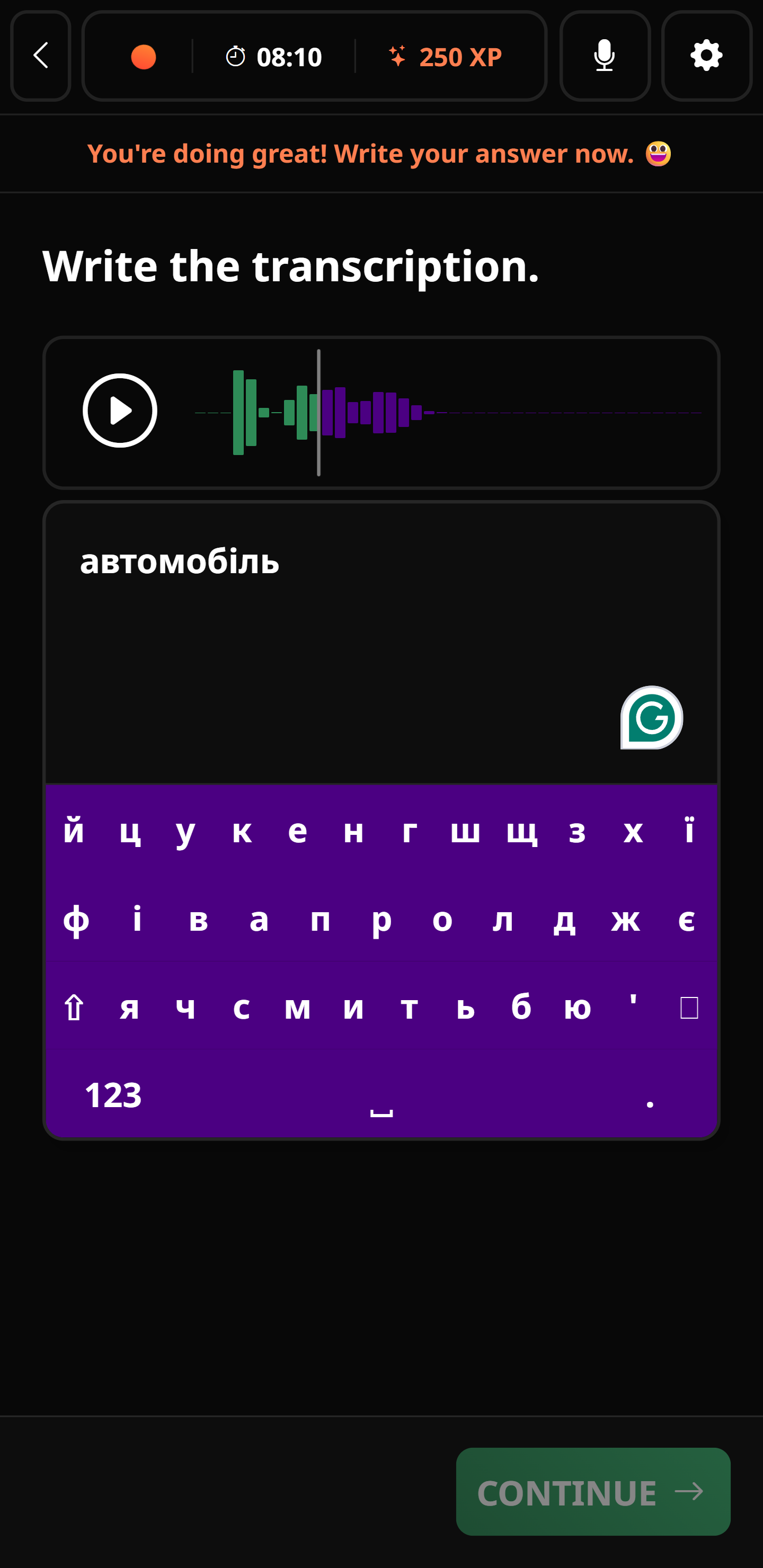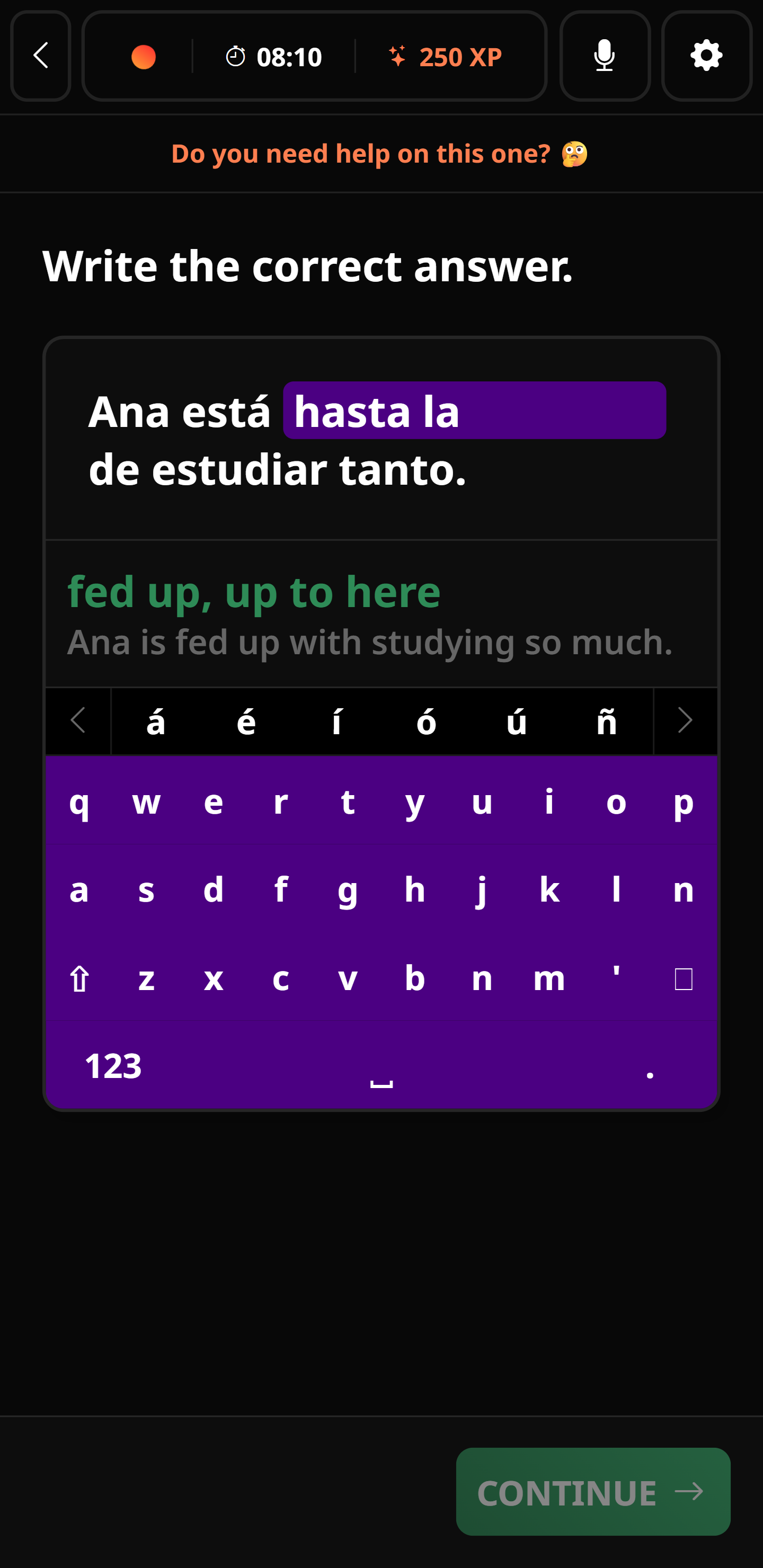🔥 Essential Vocabulary for Wartime Communication
In this lesson, we introduce 20 powerful Ukrainian words designed to empower your communication during wartime. These words are not only part of everyday language, but they also carry historical and emotional resonance. For example, the word (bravery) reminds us of the strength one needs during challenging times. This section builds on our previous work with 100 Essential Ukrainian Words Every Beginner Should Know and introduces new, impactful vocabulary.
Important
Understanding these words is crucial for any intermediate learner. We will explore how these terms can be used contextually to express complex feelings and ideas in the face of adversity.
Below is a vocabulary table that outlines 20 critical words along with their English meanings:
Notes
It is imperative to study and practice the pronunciation and intonation when saying these words. Using audio tools alongside this lesson can enhance your learning experience.
🛡️ Grammar Foundations: Nouns and Adjectives in Context
This section focuses on the grammatical structures surrounding our 20 powerful Ukrainian words. Most of these words are nouns and adjectives, which follow rules of case, gender, and number. An important aspect of Ukrainian grammar is adjective-noun agreement, which ensures that descriptive words align with the nouns they modify. For instance, when describing (hero), the adjective needs to agree in gender, number, and case. This topic builds on lessons such as 25 Ukrainian Adjectives for Beginner Learners: A Comprehensive Lesson.
Important
Review how adjectives change their endings based on the noun they describe. This is especially important in wartime messaging, where precision in expression can communicate urgency and emotion.
Consider the following brief table showcasing the plural forms and gender association for key vocabulary:
Examples
When discussing (victory), it is crucial to use the appropriate case. For instance, in phrases like "celebrate the victory", the direct object should take the proper accusative ending. Always pay attention to case adjustments.
Become bilingual in 30 days with Univext!
Start a lesson with our teacher for free and become bilingual like our 50,000 students!



🌟 Conjugation Focus: Verbs Shaping Your Sentences
Verbs are the heartbeat of any language. In Ukrainian, verbs can change significantly with tense, aspect, and mood. In a context such as wartime communication, dynamic verbs like (to defend) and (to resist) capture action and intent. Understanding how to conjugate these verbs in different tenses is essential for expressing past struggles, present efforts, and future aspirations. This module builds upon elements from 20 Verbs in Ukrainian To Absolutely Know For Advanced Learners.
Important
Study verb conjugation patterns to ensure accurate and effective communication. Conjugation allows you to specify the subject, whether singular or plural, and indicates the timing of actions.
Below is an example table that demonstrates the conjugation of the verb (to defend) in the present tense:
Examples
In a wartime context, you could say: "" meaning "We defend our land." Using the correct conjugation not only aligns with grammatical rules but also intensifies the expression of commitment and resilience.
⚔️ Sentence Structures and Expressions for Impactful Communication
Crafting sentences that resonate during difficult times requires mastery over sentence structure and the ability to integrate powerful vocabulary. Ukrainian sentence structure can be flexible, but the placement of adjectives, verbs, and nouns can alter the emotional weight of a sentence. For instance, an expression like "" (Courage gives birth to victory) highlights the importance of ordering words to create a rhythmic impact.
Important
Practice combining vocabulary and grammatical rules to develop expressions that truly communicate your message. Aim to construct sentences where powerful words enhance overall meaning and inspire the reader.
Integrate concepts you may have learned earlier about Ukrainian cases with our learning resource Ukrainian Cases: A Step by Step Guide To Master Them and learn how the accusative case functions in phrases using lessons like The Accusative Case in Ukrainian: A Step-by-Step Guide. This foundation helps ensure that your sentences are not only grammatically correct but also resonate emotionally with your audience.
Notes
Cover additional examples in your study sessions by mixing words like (hope) and (freedom) to form expressions that speak to the spirit of a nation.
🚀 Integrating Powerful Words into Everyday Language
Incorporating the 20 powerful words into everyday conversation, particularly during wartime, adds robustness to your Ukrainian language skills. This lesson emphasizes the fluid integration of vocabulary with daily expressions, ensuring contextually meaningful use. Use phrases like "" (mutual support leads to victory) to evoke strong imagery. This approach allows intermediate learners to communicate subtle emotions while adhering to correct grammar and conjugation rules.
Important
Practice using these terms in varied contexts. Repetition and context are key factors in mastering a language. Linking back to other educational content, we recommend reading more about 20 Ukrainian Insults In Depth: A Comprehensive Ukrainian Lesson to understand the full range of expression in Ukrainian, even if in different contexts.
Mastering the integration of vocabulary is further enhanced through diverse examples. To illustrate, consider the simple sentence constructing method using (strength). One might say, "," meaning "The strength of the people is unbreakable." By practicing such sentences, learners naturally improve their comprehension of sentence structures, grammatical agreements, and the art of using impactful language during warfare.
Examples
Another illustrative expression is "," translating as "Valor and dignity instill faith." Such expressions are vital during times of conflict as they evoke pride and solidarity among speakers.
By drawing connections with previously learned content, such as the Ukrainian Alphabet: The Complete Guide to Master All Letters, you can refine pronunciation and letter recognition to enhance your spoken and written Ukrainian. Such foundations enable more complex sentence formations and help in expressing nuanced ideas in stressful situations.
Notes
Consistency is key. Integrate words from your vocabulary list into your everyday speech and writing, ensuring you practice both grammar and intonation. Regular usage solidifies your command over these powerful words.
Become bilingual in 30 days with Univext!
Start a lesson with our teacher for free and become bilingual like our 50,000 students!



🎯 Advanced Usage: Expressing Complex Ideas with Powerful Words
As battles of expression and emotion intensify, the ability to articulate complex ideas with precise language is crucial. Using our 20 powerful Ukrainian words, learners can form compound sentences that capture multiple layers of meaning. In advanced communication, it is important to balance vocabulary with proper grammatical structure for maximum impact. For example, you may say, "," meaning "Courage and bravery lead to unbreakable will."
Important
Advanced usage involves understanding how to layer adjectives and verbs to reflect multiple ideas within a single sentence. This mastery fosters clearer, more compelling communication during conflict and beyond.
Consider the structure of complex sentences where you combine multiple powerful words. Here's an example table that outlines paired expressions for deeper meaning:
Examples
An advanced sentence might evolve as follows: "." Such sentences are ideal for journalistic articles and motivational speeches during times of conflict.
Additionally, linking expressions with vivid words like (resistance) or (devotion) can dramatically enhance the impact of your messaging. Recognizing and applying these nuances in conversations elevates the learner's command over Ukrainian as an expressive and resilient language.
Notes
This advanced exploration helps you integrate previous topics more deeply. Revisit earlier lessons, such as those on 100 Essential Ukrainian Words Every Beginner Should Know, to build a robust vocabulary that supports sophisticated narrative forms.
🌈 Contextualizing Culture: The Emotive Power of Language in Times of War
The language used during wartime carries cultural and emotional significance that transcends simple definitions. Each powerful word in Ukrainian is steeped in history and collective memory. A word like (hope) is not just a term—it embodies resilience, endurance, and the unwavering spirit of the people. Delving into the cultural context reinforces the learning process and deepens your appreciation for the language. This discussion aligns with our broader linguistic exploration from previous blog posts like The Accusative Case in Ukrainian: A Step-by-Step Guide.
Important
Contextual awareness is crucial. Recognizing the cultural weight behind words helps build a connection between language and identity, which is essential for any intermediate learner aiming for fluency.
Modern usage of these words might appear in journalistic writing, speeches, and daily communications. Integrate cultural insights by comparing phrases from historical texts, songs, and famous speeches. For example, the usage of (freedom) can differ based on historical and social influences. Learning these subtleties will reinforce your language proficiency and help you appreciate the depth of Ukrainian expression.
Examples
A compelling phrase such as "" (The dignity of the people is the source of strength) encapsulates both cultural pride and resilience, making it an inspiring message in times of conflict.
By exploring the emotional undertones of each word, learners gain insight into the values and heritage embedded in the language. This cultural sensitivity is vital for effective communication, providing a richer context when articulating your thoughts and emotions during trying times.
Notes
As you continue to refine your Ukrainian skills, consider how each powerful word connects with larger societal narratives. This deeper understanding will enhance both your spoken and written Ukrainian.
